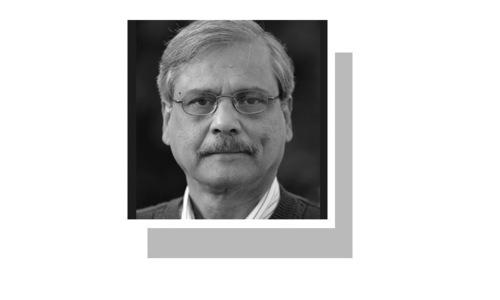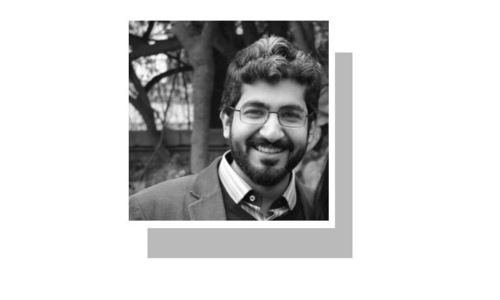OF the two families that have ruled Pakistan since the last 50 years, which have seen two interludes by military strongmen, the Bhuttos have been around since 1971 (51 years) while the Sharif family has held sway since 1981 (41 years). Nawaz Sharif was selected and groomed by military dictator Gen Zia to counter the Bhutto family. Over the years, their political ‘maturity’ has led them to shed their traditional animosity and join hands to decimate the third force rearing its head to challenge their dominance.
Dynastic rule is not unusual in the world. If we look around our own region, the Nehrus ruled India for several decades post partition until Modi came to power in 2014. Jawaharlal Nehru was premier for nearly 17 years; his daughter Indira Gandhi was PM for a total of nearly 16 years. Manmohan Singh as a Nehru proxy was prime minister for 10 years and Rajiv Gandhi for another five. Thus the Nehrus dominated politics in India for 47 out of 67 years after independence until Modi came along in 2014. The family is down but not out.
In the Philippines too, there have been a number of political dynasties, the more famous them being the Aquino and Marcos families. Ferdinand Marcos was president for 21 years and was ignominiously ousted on allegations of corruption against him and his wife. But the public has forgotten that, electing his son as president this year while his daughter is also prominent in politics.
Benigno Aquino Jr was a leading figure in the opposition against the Marcos regime. When he was assassinated, the sympathy vote led to his wife Corazon Aquino becoming president. Several years later, her son Benigno Aquino also served as president.
Hereditary politics is common in South Asia.
Sri Lanka is a classic example. For the past two decades, Mahinda Rajapaksa has loomed large, first as president for a decade between 2005 and 2015 and then as PM. Up until recently, one Rajapaksa brother was president, another prime minister, a third defence minister and another finance minister. After the recent crisis, the president dropped his PM brother, followed by another, but the family’s grip continues.
Earlier, the Bandaranaike family held sway in Sri Lanka. S.W.R.D. Bandaranaike was PM from 1956 to 1959. After his assassination, his wife Sirimavo Bandaranaike was PM three times intermittently from 1960 to 2000. In 1994, their daughter Chandrika Kumaratunga became president and remained so for 11 years. From 1994 to 2000, mother and daughter Chandrika were concurrently PM and president, respectively.
The phenomenon of political dynasties, defined as a family with multiple members involved in politics, is not restricted to South Asia but can be found all over the world. A study published in the Historical Social Research journal examined 1,029 political executives, ie presidents/prime ministers, in sub-Sahara, Asia, Europe, North America and Latin America between 2000 and 2017 and found that 12 per cent of all world leaders belonged to a political family.
Hereditary politics, then, obviously confers an advantage. Imran Khan has been shouting himself hoarse about the scourge of political dynasties. Indicated by the crowds he pulls, he has obvious support amongst the populace.
Much can be said about the dictatorial style of democracy practised by the two political families, although some feel the country has been managed in the last 50 years by only three individuals, ie Nawaz Sharif, Benazir/ Zardari and whoever is the army chief, with Imran Khan being the recent entrant on the scene.
But does Imran have a permanent place to add another dimension to this troika? Perhaps not. He has no family to carry on his mission. His party is not organised and has no rules-based system of advancement within. Genuine elections have never been held because Imran did not have the courage to face the initial shocks within the party that will obviously happen when vested interests, who are not popular in the party, are dislodged by elected office-bearers.
Imran has espoused clean principles of Western democracy and often talked about Riyasat-i-Madina but never seriously attempted to introduce democracy within the PTI to make it a different party from the other two dynastic parties he so dislikes.
In a best-case scenario, Imran may rule the country for the next 10 years. But without him, there is no PTI. But there are among the Sharifs and the Zardaris, family members in their 30s and 40s who can afford to wait him out and, based on the above analysis of the advantage of dynastic politics, come back to power without any PTI to challenge them.
Imran’s 26-year struggle will come to naught if there is no permanent change in the political ethos. The only option for him to see the fruits of his struggle and leave behind a legacy which outlives him is to make PTI rule-based, with grassroots democracy within the party.
The writer is a former civil servant.
tasneem.m.noorani@gmail.com
Published in Dawn, June 12th, 2022













































